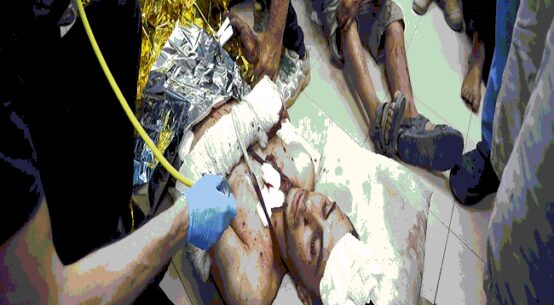The PTI’s recent run in with the establishment has brought Pakistan’s innumerable fault lines to bear on the country’s already fragile politics. Is a democratic trajectory even possible under these circumstances?
The crisis consists precisely in the fact that the old world is dying and the new cannot be born. In this interregnum a great variety of morbid symptoms appear (Gramsci, 1930).
Is Pakistan incapable of being a democracy? Are we destined for cycles of vengeance, instead of freely elected civilian governments that run functioning economies? Are we so insufficiently Muslim or sovereign that we need haqiqi azadi and a ‘spiritual revolution’ led by a denied anti-hero?
In a world suffering a democracy deficit, Pakistan’s material contradictions make it most insolvent. Deepened civil-military, capitalist-welfare, religious-secular, patriarchy-feminist fault lines have encouraged the exercise of brute power by these elites over their weakened hybrid captives.
Imran Khan miscalculated how revolutionary preconditions require more than a mirage of ‘first time ever’ vanity projects, but he did unsettle the military’s hegemony. Gaining allegiance from across rank and file, Khan thwarted this privilege from a few ambitious Generals. The Memorizer brokered no tolerance for split loyalties and filed for ‘divorce.’ Paradoxically, Khan denies being fostered by the Deep State, but is personally aggrieved over abandonment by its shallow conceits.
The upper crust of the PTI pie collapsed because its filling was ideologically weak yet, its supporters refuse humility. Due to the benefit of digital visuals rather than historical accuracy, they claim unprecedented blowback. Silent over their government’s acquittal of General Musharraf, after 9th May, Khan’s adulators accuse the same activists they trolled, abused and shamed (many of them veterans against multiple dictatorships), of being complicit with state violence. For them, contextualizing events by holding a mirror and recalling the systematic gendered and class suffering of state atrocities is to gaslight the exceptional suffering of the PTI and qualifies as aiding the military.
The Memorizer brokered no tolerance for split loyalties and filed for ‘divorce.’ Paradoxically, Khan denies being fostered by the Deep State, but is personally aggrieved over abandonment by its shallow conceits.
This is the exact hubris assumed by disconnected commentators all through the War on Terror years, i.e., protests against Taliban militancy was equated with support for drones, US imperialism and military rule. Accusatory slurs like chor, daku, lifafa, khooni liberals, Westoxified, imperialist, and orientalist don’t require evidence, but do silence free speech and criticism. They do not decolonize us from some unspecified ghulaami but simply make PTI supporters rhetorical bedfellows of the far-right and the niche-left.
Khwaja Asif nailed it when he distinguished between the laboring classes of overseas diaspora, and the intellectual and political cowardice of overseas professional classes who identify with the “struggles” of Khan.
Lahore-centrism bereaves the ‘end of politics’ because this time, brute intimidation has spared the peripheries and targeted Punjab – the self-serving heart of politics. The crackdown unnerves newly emerged activists unfamiliar with a state that is refusing upper class or gendered impunity. Jaded observers of the lesser provinces find it hard to sympathize with the undoing of PTI because moral and political outrage has been so exhausted by the party, of the party and just for itself.
Just like Zia’s children imbibed religious nationalism, and Musharraf’s enlightened moderate progenies faked liberal lifestyles, Imran’s youth relied on social media and polarized and toxified politics. This stifled substantive, in-person or parliamentary debate. Instead, trolling, virtue signaling, and discrediting any opposition while running on empty piety became their staple. They are false radicals who buy their own spin of ‘absolutely not.’
A free and critical media, the rule of law, and equal accountability are features of liberal democracies, but without a free opposition, there is no democracy. Demonizing opponents as treacherous or ‘Mir Jafars’ comes from the playbook of warfare and undermines civilian leadership.
The trope of victimhood is common to all deposed parties but PTI weaponizes gender, nationalism, piety – ‘our’ women vs theirs, haqiqi versus imported government, azaadi over ghulaami. Religious pledges of submission to God over state sanctify Islamization of governance and hallows an exceptional savior over mere mortal democratic leader. The only sacrifice needed is of the egos of leaders who dispense Tik Tok style misinformation on every subject ‘better than everyone else’ in the world.
Elections are democratic bedrocks, but selective festishization of the Constitution evades the condition of free and fair. Votes are the means, not the end of democracy, and checks and balances are critical qualifiers. A free and critical media, the rule of law, and equal accountability are features of liberal democracies, but without a free opposition, there is no democracy. Demonizing opponents as treacherous or ‘Mir Jafars’ comes from the playbook of warfare and undermines civilian leadership.
‘Yes’ men are bound to follow the heels of a populist who has sacralized authoritarianism. The PDM’s abdication of democratic principles and human rights at the altar of GHQ is political suicide. Its legacies will be suffered by their dynastic successors.
Instead of playing king-makers, heads of state offices should fix their own institutions, purge harassment, nepotism and ensure meritocracy within. It is the responsibility of the (Aitchisonian) judicial process to protect all civilians, not just select elites, from military courts.
Whether the uprising on 9th May was earnest or an old trick of staged mock insurgency, either way, the investment was not for new democratic ends. For a consistent and stable democracy, the economy is the most critical point of radical reform and redistribution for egalitarianism. Further, without institutional restraint, primarily on the part of the military and judiciary, and the commitment of all parties to build political consensus, and a bold and principled civil society, old democracy will keep receding without allowing a new one to be born. In the final analysis, all of them have played a dismal role in this round.
Afiya Shehrbano Zia is the author of Faith and Feminism in Pakistan, and can be contacted on afiyaszia@yahoo.com

